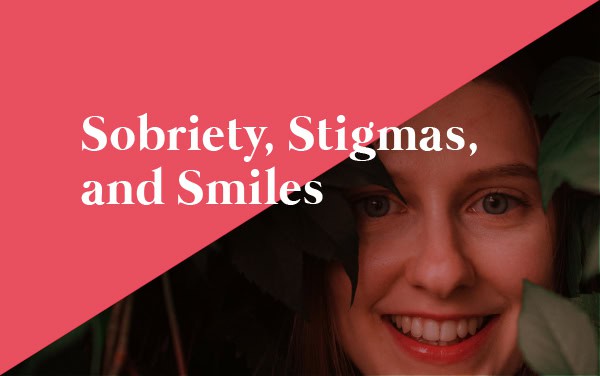
by RE Helper | Jun 15, 2024 | Alcohol Free, Blog, Early Sobriety, Helpful Tips, Uncategorized
Today’s blog entry is from Justine. Justine has been a member of Café RE since November 2023. She can be found supporting her fellow Café RE UP members and on the Café RE chats.
Sobriety, Stigmas and Smiles
By: Justine (Café RE UP)
As I sit here today, I am 2 years and 11 months sober. A few months ago, I decided to tackle the daunting task of beginning to date again. As if dating in your thirties isn’t hard enough, I am one of the chosen ones who must add “alcoholic” to my resume. I know some people choose not to embrace that label. When I first started my sober journey, I wouldn’t be caught dead calling myself an alcoholic.
But where I stand today, I say it purposefully.
I want anyone I tell that to to know that if they ever see me drinking, there is a serious problem.
Just another way to keep myself accountable.
Anyway, I digress. The point is, when I decided to date, I knew that I would have to share the part of my past I so desire to change, my alcoholism. It is something I bring up in the first conversation. I began seeing someone exclusively for the past five weeks. A few days ago, he let me know that he could no longer do it because it weighed too heavily on his mind to know that if I were to relapse, he could never support me through it. Phew! As an outsider, you’re probably thinking I dodged a bullet. And deep down, I know that I did.
Here is the thing. My first reaction was that of sickness. What a punch to the gut to know that something I have worked so hard to change about myself can STILL stand in the way of my happiness. For the last 1,072 days, I have woken up and made the incredibly difficult choice to remain sober.
If I could go back and re-write my past, I would do it in a heartbeat; But I can’t. My past is the one thing I will never be able to change. This experience served to remind me that the stigma of alcoholism still exists so prevalently in our society. It felt like someone was telling me that I will forever be undeserving of (their) love because I am an alcoholic. That no matter the length of time I have away from the bottle, there will always be someone there to remind me, “But hey, you might relapse.”
I’ve been reflecting a lot on coming up on three years of sustained sobriety. I’ve shared in a few evening groups about how difficult it feels to have achieved so little in what seems like so much time. In the Café RE community chat today, I listened while others reflected on change within sobriety. I changed a lot in the beginning. My appearance, my career, my location. Still, I am not where I want to be. The truth of the matter is, it took me more than a decade to ruin these parts of my life. So, I’m not sure why I have the audacity to think I can rebuild it in just three short years.
Instead of dwelling on what I don’t yet have, I started to reflect on what I do have.
- I have two sisters who love and support me unconditionally, who understand and are always willing to lend an ear.
- I have my health and the ability to run long distances with relative ease.
- I have perspective on my problems.
- I have coping mechanisms other than alcohol to deal with those problems.
- I have the ability to be present in the moment and a proper role model for my nieces.
- I have two fur babies who provide me with the most comfort I have ever felt.
- I have a job that pays me.
- I have a roof over my head, food to eat, clothes to wear and the ability to order off Amazon a few too many times per month.
I have my personality and most importantly, I have my smile back.
In active addiction, I did not have many of those things I just mentioned. When I write it all out, how foolish it is to think that I haven’t achieved much in sobriety! Here is my reminder to you. If you are struggling with the “why” and want to take the easy way out, write down all the things you might lose again. Despite not yet being completely “fixed”, I would never in a million years wish to go back to my old life. I want to take a second to thank everyone in the Recovery Elevator community for being a part of my journey. At the beginning, I was most definitely a dry drunk.
If I could start over and do one thing differently, it would have been to join a community sooner. What great perspectives I gain every day from every single share. Here’s to many more years of sobriety and smiles.
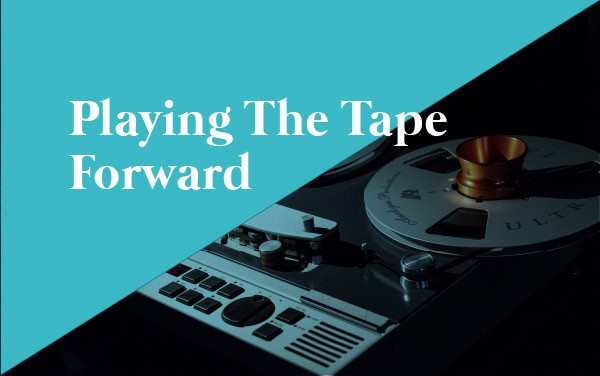
by RE Helper | May 15, 2024 | Alcohol Free, Blog, Early Sobriety, Helpful Tips, Uncategorized
Today’s blog entry is from Johanna C. Johanna has been a member of Café RE since September 2023. Sha has been an active and supportive member of her Café RE Blue group and our Café RE chats!
Playing The Tape Forward: A Foundation For My Sobriety
By: Johanna C. (Café RE Blue)
Through the course of a sobriety journey, we’ve become accustomed to the concept of building a tool kit. Stacking together concepts, ideas, and ways of coping that don’t include alcohol as a way to navigate to a better life and get closer to our true selves.
There are sobriety phrases, some albeit corny or even annoying.
For me, it’s the “grateful alcoholic” identity (ps I am getting comfortable with the word grateful as it relates to my sobriety journey). There may be one (or more) that are uncomfortable or downright piss you off. One concept that I learned from Paul & the Recovery Elevator POD, that still to this day, 3 months in (today, November 18th), on an extended 3+year effort towards an AF life, is playing the tape forward. Episode 356: Play the Tape Forward.
It’s not so much a phrase, but a tool, a strategy.
A mechanism through which we can move through our addiction and keep saying YES to an AF life. Despite our time away from alcohol, there are moments or even extended periods of time when we feel like a life with alcohol isn’t so bad, that we can moderate. The fear of missing out is too great and the loss of that idealistic, glamorized life with a fancy glass of wine, a craft beer or a seductive cocktail with fancy elixirs mixed in, is what we want. It’s what we think we need to be complete.
Or when the stress and sadness are too much, and we want to retreat into our safe space of numbing, alcohol is ready to accept that familiar role. The reality is, that space is not safe. There is no trust. It’s downright dangerous.
And for those of us who have taken a step into the other side, regardless of sobriety time, see it. And the challenge now is to make it stick somehow. So…when we play the tape forward of what that life was like, it’s meant to stop us in our tracks and remember. Remember that all too familiar audio and visual representation of who we are when we’re drinking. The choices I made, the sick feeling I would feel, the events I would miss, the friends I would disappoint, the depression that would consume me – the list goes on.
When we’re in it, we can’t see it.
Of course, we experience and feel the booming headaches, the continuous, all-day nausea, the puffy face, the bloodshot eyes, the inner shame and fuzzy recollections of what occurred the night(s) prior. I’ve come to realize, there is a strong sense of culture that paints that picture as an expected way of life.
That it’s somehow funny to blackout.
Waking up not knowing what you did last night and that when we promise we’ll never drink again, it’s quite fine when we reach for the wine and wine glass the next weekend when happy hour hits. Social media is a breeding ground for insidious shit like that. We feel all of it and it sucks. But in the depths of alcohol and its tendrils that permeate every part of our being, when we’re using, it prevents any of us from seeing the other side. I’ve learned, in many ways, it’s chemically impossible.
What playing the tape forward does is remind me. It grounds me. It calms me, in some way. For some, it terrifies them. It terrified me early on. It felt like there was too much to lose.
Some of us feel like we would let our communities down.
And now, after joining Cafe RE and participating actively for the last 2 months (I’m a newbie), in chats and outreaches to those who’ve lent a hand, I look at it this way: if I decide that drinking is most important now, as these feelings of re-inclusion come over me from time to time, then what does that mean? What do I have to give up? Who am I then?
It means that I will not and cannot live authentically every moment of every day.
That in a blink of a notice, if someone needs me, and I am drunk or drinking, I won’t be fully present. Even though I may want to. It means that at some point, eventually, one glass will turn into bottles. This will lead to paralyzing depression and anxiety, leaving me wondering, “How did I get here.”
When we play the tape forward, we see the life we left. We get the opportunity to choose an alcohol-free life every time. A life of freedom and rid of the toxicity that drives us further and further away from who we really are.
Before I say this, please know that I am in no way suggesting to experiment. The 8 months of “field research” that I engaged in after 1.5 years of sobriety in led me to the familiar line, “how did I get here (again)”. It has taught me that it WILL eventually return to that point. It took some time, but I had reached that point, again, amidst a tragic loss.
Alcohol fades our memories.
It dulls our feelings, loves us to live in gray versus technicolor. It feeds on us living in a depressive state. And that, I know (and we all know) is an indisputable fact. As I write this, I tear up with emotion. Reflecting on this 3+ year journey and the lessons it has allowed me to learn. The space for me to, for the first time in my adult life, truly decide how I want to live. And most importantly why I want to live that way.
I recently took advice from Laura McKowen, from her latest book ‘Push Off From Here.’
She writes about a practice she learned in therapy, a form of written visualization, where you play two different tapes forward (hmm… I thought there was only one…). Laura explains that you are to imagine a scenario where you would anticipate feeling that without alcohol/drinking, it would be incomplete, not fun, boring etc.
Then, with as much detail as possible, write each scenario out one at a time: one where you’re drinking as you would and one where you aren’t. Page 93 in Push Off From Here.
I chose Christmas Eve and Christmas Day. Holy Shit was that wild.
When I was drinking, those two days were ones that I would always regret, year in and year out. My first sober Christmas Eve and Day – a true milestone. A moment I will always include in my preferred tape forward. Through this exercise, I was able to reflect on the tape that illustrates my life as an anxiety-ridden, unpredictable and obsessive drinker. And then one where I am a present, joyful, thankful and gracious person. One who loves spending time with their family during the holidays and cooking delicious meals, despite the stress it sometimes brings on.
Writing it out, playing both tapes forward, as plain as day on paper, did wonderful things. It caused some things to shift. Mostly, it made space for me to be proud of the choice I’ve made to stay alcohol-free today. It reminds me of the gifts it gives me each moment. It empowers me to warrior on, closer to the person I already am.
By Johanna C, 3 months sober (at the time of writing), most recent sober date August 18th, 2023. First ever sober date was June 22, 2020, a date I am proud of as well. I’ve been a member of Cafe RE since September 18th 2023. That day was the day when I decided not to try sobriety alone ?
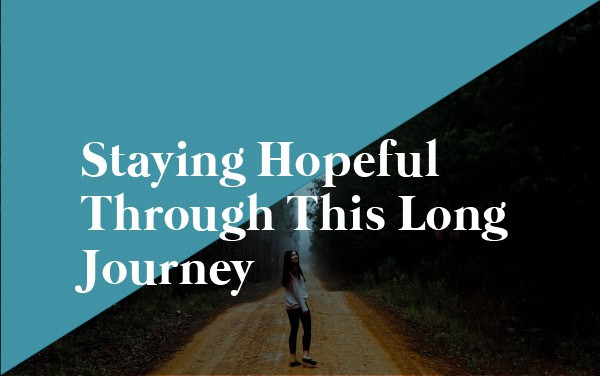
by RE Helper | Apr 15, 2024 | Alcohol Free, Blog, Early Sobriety, The first Year, Uncategorized
Today’s blog entry is from Ana. Ana has been a member of Café RE since April 2023 and is an active and supportive member of her Café RE OG group!
Staying Hopeful Through This Long Journey
By: Ana (Café RE OG)
Around 4 years ago, when I finally admitted I needed to tackle my drinking problem, I truly believed I wouldn’t be able to go a single day without alcohol.
It was scary.
It’s taken a lot of work; programs; books; podcasts; tears; failures; dollars; etc., but I’m pleased to say I’m on a good path to recovery.
Lately I’ve been feeling stuck though.
For the last 2 years or so, I’ve been trapped in the same cycle: I go about 3 months without alcohol. I don’t miss it; I hate it; I gag thinking of the taste. One day I get the nagging idea that I can drink moderately, like I used to.
I don’t want to go back to drinking, even in moderation. I just HAVE to prove to myself that I can, just one final time. I then try, it doesn’t work, and I end up back to square one with a new horrible story under my belt (I’m a binge drinker). It doesn’t make any sense – it’s my brain tricking me into drinking at all costs.
It usually goes like this:
I haven’t drunk in months and I feel great, so I’m CERTAIN it will be different this time. I never go out and order a cocktail or a nice glass of wine though. I buy a pint of the cheapest vodka at the liquor store across the street; rush home; and take around 3 shots asap.
I tell myself it’s sort of the same amount as a martini, therefore I had just a martini, therefore I’m “normal” (nothing wrong with one martini, right?).
Or I’ll buy a single serve can of wine at the market downstairs. I’ll chug it as soon as I walk out of the market; can’t even wait the elevator ride back home.
I tell myself it’s one serving, one generously poured glass; therefore, I had just one glass, therefore I’m “normal”.
Obviously, nothing about this is normal. Most times, I succeed and stop drinking that day. This should be the proof I was looking for, so this should be the end of the story. But I wake up the next day feeling hungover; guilty; and defeated. I go to the market and chug a can of wine by 9 a.m. to numb the crappy feelings.
Sometimes that does me in; sometimes I go a couple more days playing with fire like this.
Eventually I ALWAYS lose control and end up in yet another life-altering, humiliating binge.
This is a cycle I haven’t been able to break yet, and I so want to change that. Today I was at that crossroads. On Wednesday night I had my 3 shots of nasty Skol vodka (my “martini”). Thursday morning I felt wretched, so I eventually caved and had chugged a can of wine by lunch time. I miraculously didn’t drink on Friday. On Saturday though, the nagging discomfort was unbearable. I had some vodka in the afternoon.
My boyfriend was picking me up at 6 to go to a party. The risk of him finding out I’d been drinking and ruining the evening and further damaging our relationship didn’t stop me from having a can of wine dangerously close to 6. I felt miserable at the party, trying to act normal and not get caught. I just wanted to come home so I could have another can of wine before bed. To my annoyance, when my boyfriend drove me home, he wanted to come upstairs and hang out. I couldn’t wait for him to leave (how sad), and I got my can of wine as soon as he left.
Today is Sunday. I woke up, you guessed it, hungover and depressed. Every Sunday morning I volunteer at an animal shelter. On a similar Sunday, I would’ve stopped at a Walgreens on my way and bought/chugged a can of wine. In the afternoon, I would’ve stopped at one of the many liquor stores I’ve memorized on my route home. And that would’ve been the beginning of a dreaded binge.
I kept thinking the eventual binge was unavoidable. I even wondered if I should just get it over with, instead of torturing myself. I had to try harder, do things differently.
I played an episode of the Recovery Elevator podcast on my way to the shelter.
I picked one titled “What to say to someone who is about to drink” – fitting, I thought.
The guest’s name was Grant. His story is very different from mine, but also VERY similar. It brought back lots of harsh memories, as well as many insights I needed to hear today. Paul and Grant praised the several guests who have gone on the podcast with around 2 months’ sobriety. It felt good to hear someone acknowledge how difficult and admirable it is to cobble up 2 months. But it also felt frustrating. I’ve been a “two-monther” for 2 years now; I desperately want to graduate to the next stage! You know, the one where it gets easier!
In AA they talk about one day at a time. Today was more like one hour at a time. The Recovery Elevator podcast and conscious shift in mindset helped, but the day still felt like an endless minefield. It was sad to drive past my liquor stores and not stop. One even had an open parking spot right in front, like it was meant to be! I stopped for gas and found myself browsing the wine/beer section (I bought a Gatorade instead). I sat in my car when I got home, considering walking to the market, or even the liquor store.
I feel happy and relieved to report that I didn’t drink today.
I feel like crap, but I know tomorrow I’ll feel better thanks to today’s decisions, so I’m calling today a good day, a win. Abstinence is still my goal, so having broken my sober streak has me feeling defeated and upset.
But I have renewed hope: I did something different, and got different results. Maybe this is how I break the cycle.
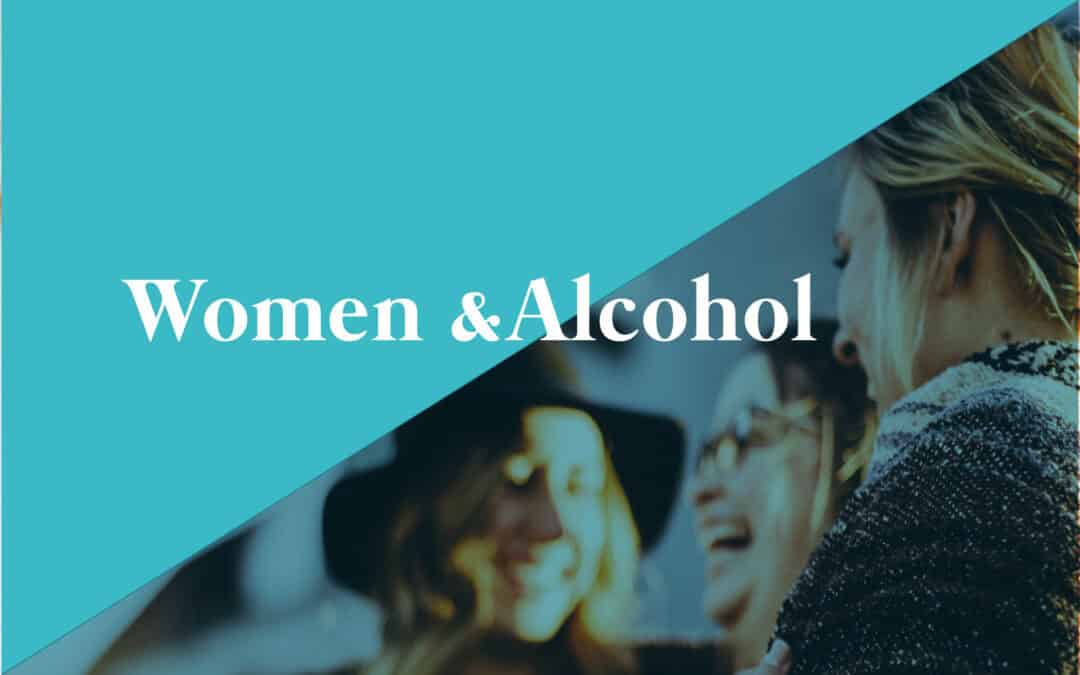
by RE Helper | Feb 15, 2024 | Alcohol Free, Blog, Early Sobriety, Resources, Womens health
Today’s blog entry is from Alisa. Alisa has been a member of Café RE since July 2023. She recently took part in our Recovery Elevator REstore 2024 course. She is an active and supportive member of her Café RE GO group!
Women and Alcohol
By: Alisa (Café RE GO)
I’d heard the anecdote that women had started to surpass men with their drinking habits. Then in 2023, the WHO announced that no amount of alcohol was safe for consumption. This was all lining up with what Holly Whitaker said in her book Quit Like A Woman. So I sought to dig into this and better understand what was behind these trends in women’s drinking.
The history of women and alcohol is an interesting one.
It zigzagged from a movement to ban alcohol (predominantly to stop men from plundering the family savings at the bar) to the pursuit of a seat at the bar. Ironically, Prohibition gave rise to secret bars (speakeasies). Where women were able to redefine long standing gender roles by smoking, drinking, and having fun in public. Though women had imbibed before this time, they had rarely done so in public because as you can imagine, most drinking establishments were male-only. “So for young women, speakeasies stirred a spirit of rebellion”.
In order to understand what happened to the alcohol industry, it’s useful to examine what happened with cigarettes.
Big Tobacco used several strategies to advertise to women. For example, the industry prompted a feminine ideal of thinness presenting the cigarette as a way to achieve this ideal. They taught Hollywood actors how to smoke in films to make smoking look sophisticated. They also hired a PR giant. The PR giant then hired women to smoke in a parade to manufacture a connection between smoking and liberation. He coined the term “Torches of Freedom” to encourage women to smoke as a symbol of emancipation and an act of challenging social taboos.
Big Alcohol* rode in on the coattails of the tobacco industry.
They used similar tactics to market alcohol to women by appealing to their thirst for equality and independence. By making tobacco products custom fit to women (think Virginia Slims) and hiring women to smoke while engaging in the women’s liberation activities, they spread the idea of smoking as empowerment. Similarly, the alcohol industry created pink drinks, colorful labels, overpowering fruit flavors, and low-calorie options to target women by capitalizing on gender stereotypes. I find these strategies incredibly ironic since initially the alcohol industry used women’s bodies (and implicitly the promise of sex) to sell alcohol to men.
The advent of social media made things even easier for Big Alcohol
The advent of social media made things even easier for Big Alcohol as algorithms specifically targeted individual demographics. Now we receive customized ad feeds based on our past behaviors. Us social media users also became their advertisers by spreading trends like “Rose All Day.” Culturally, alcohol (and especially wine) became a symbol of stressed-out women and moms with memes featuring “Mommy juice.”
Sadly, these common marketing messages exploit women’s desire for friendship, relaxation, and empowerment. Having a glass of wine has become a way that women and moms feel like they are taking care of themselves. As Sarah Hepola put it in her drinking memoir Blackout, “Wine and confession. Wine and sisterhood. Wine had become our social glue, the mechanism of our bonding. We needed the wine to shut out the jackhammers of our own perfectionism and unlock the secrets we kept within”.
While many of us use alcohol as a social lubricant, we may also use it to “unwind” in private.
While many of us use alcohol as a social lubricant, we may also use it to “unwind” in private. Concepts like ‘Wine o’clock’ offered permission to drink when we felt like it and linked alcohol to a method for navigating daily life stress. Absolutely none of us are to be blamed for falling for this and using alcohol in these ways. As the addiction and trauma specialist Gabor Mate says, alcohol use is a response to pain and suffering. Alcohol has long been a culturally accepted and condoned way of dealing with stress. In fact, alcohol marketing to both women and men ramped up during one of the most stressful global times in recent history: the pandemic. Here is an example of a marketing slogan by Retail Drinks Australia:
“If we want people to stay at home, if we want them in a good state of mental health with a conviviality that encourages them to adhere to social isolation, we’ve got to ensure they have access to the social norms such as enjoying a drink.” Danica Keric and Julia Stafford from the Cancer Council Western Australia’s Alcohol Programs Team said in response, “There was a deliberate move by the alcohol industry to frame alcohol as an essential product including for our mental health, during the pandemic”.
If you’re not appalled by now at how the alcohol industry operates, consider how the same things are happening with our food supply.
Like alcohol and cancer, the food industry plays a significant role in the metabolic disease rates in our country by lacing food with addictive chemicals like sugar and then obscuring the dangers of these additives. “The system works. Not for the best interests of health but for the best interests of those who are profiting off the system” Michael Greger, author of How Not To Die.
My favorite Quit Lit writer and recovery program pioneer, Holly Whitaker, summarizes:
“We read labels, we shun gluten, dairy, processed foods, and refined sugars. We buy organic, we use natural sunscreen and beauty products. We worry about fluoride in our water, smog in our air, hydrogenated oils in our food, and we debate whether plastic bottles are safe to drink from.
We replace toxic cleaning products with Mrs. Myers and homemade vinegar concoctions. We do yoga, we run, we SoulCycle and Fitbit, we go paleo and keto, we juice, we cleanse. We do coffee enemas and steam our yonis, and drink clay and charcoal, and shoot up vitamins, and sit in infrared foil boxes, and hire naturopaths, and shamans, and functional doctors, and we take nootropics and we stress about our telomeres. These are all real words.
We are hyper-vigilant about everything we put into our body, everything we do to our body, and we are proud of this. We Instagram how proud we are of this, and we follow Goop and Well+Good, and we drop 40 bucks on an exercise class because there are healing crystals on the floor.
The global wellness economy is estimated to be worth $4 trillion. $4 TRILLION DOLLARS. We are on an endless and expensive quest for wellness and vitality and youth. And we drink fucking rocket fuel”.
While women started off forbidden from drinking in public, women are now drinking as much as men if not more. But what most women don’t know is that our rates of addiction and alcohol-related deaths are surpassing theirs. It turns out that due to our physiology, women start to have alcohol-related problems sooner and at lower consumption rates than our male counterparts. This occurs because of how we process alcohol. Because we have lower total body water content, blood alcohol levels are higher. The first stage of alcohol metabolism is slowed which results in more alcohol being absorbed into the bloodstream. Unfortunately, this leads to greater generation of liver-toxic products like acetaldehyde. Thus, imbibing alcohol increases the vulnerability of women to the risk of alcohol-related illnesses such as liver disease and cancer.
In my fantasy worldview, everyone is ethical and people who have the authority to powerfully impact public health make the “right” (aka moral) decisions. Sadly, this isn’t true. The way we can take our power back is to know the truth and make decisions based on these facts. When I started treating sobriety as an act of rebellion, something new clicked for me. I hope it can for you too.
*Big Alcohol refers to the lobbying front group for twelve of the largest multinational alcohol corporations.
**More from Recovery Elevator referencing Big Alcohol**
RE Podcast Episode 407
Blog – A Messgage to Big Alcohol
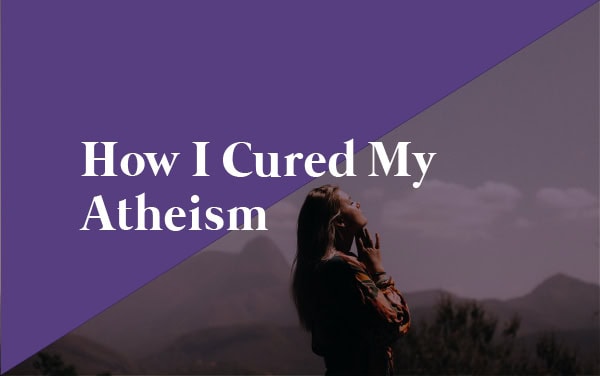
by RE Helper | Jan 15, 2024 | Alcohol Free, Blog, Expectations, Helpful Tips, Resources, Uncategorized
Today’s blog entry is from Bobbie Malatesta. Bobbie has been a member of Café RE since February 2020. Bobbie just celebrated 4 years alcohol free and is a big source of support to her Café RE UP group!
How I Cured My Atheism
By: Bobbie Malatesta (Café RE UP)
Recently, someone shared a beautiful acronym that I wish I had earlier in my spirituality journey. Before I get into that, please allow me to explain a little of my history in this department.
In my family, we had the Italian and Polish grandparents that were traditionally Catholic. My parents didn’t make us be Catholic except for when we went to weddings and funerals of course. I was given the option to choose what religion I wanted to be.
At age 10, I decided to get baptized a Baptist. I was to stand in a sunken tub in the church and get dunked by the clergy and that would be that, right? Well, not exactly. I begged the man baptizing me to hold my nose when he dunked me. Guess what? He didn’t!!
And so began my atheism. How could I trust this God if his person couldn’t even help me with my minor little request? Staying true to my disbelief and anger was easy as my life unfolded. Trauma, tragedy, death after death, abandonment, and all the other bull-oney that life has to offer seemed to start and never stop in my life. How could there possibly be a “”God” if all these bad things kept happening to me?
And so my life went.
Once I joined 12 Step and had to memorize the Serenity Prayer, it got a bit more challenging. Any time my GA crew wanted me to kick off the prayer, they expected me to say that “G” word but I didn’t want to talk to him. I still didn’t believe in him. On account of my big mouth and the fact that one of the principles in the program is that you don’t have to believe in the G word per seh, we found a compromise. Whenever I started the prayer, I addressed the Universe. Eventually, some of my fellows would start with Universe too, in support of me.
Things were going along just great until I got to Step 11. “ Sought through prayer and mediation…. conscious contact with GOD….” Oh Sugar! It was time to revisit this whole God concept for me. Long story short, I started going to church, meditating and doing the work so I could “graduate” Step 11.
One of my favorite parts of doing this “work” was being in recovery communities like Café RE. Working on Recovery Dharma, Sober travel trips with beautiful peers, learning from Patrick and appreciating the landscape of Bozeman all contributed to what is defined as spirituality to me now. I can see God now in the essence of people, sunsets and sunrises and music. The key is it doesn’t have to be labeled as god, universe or any other word in particular.
The end result was that for me, I now believed in a God, and I still choose to call her or him, Universe.
Now, I have embraced and want to share GUS!
GUS was there all along and I heard about him when I was supposed to, recently at a conference.
GUS stands for:
God
Universe
Source/ Spirit
I am believer that there is no one right way for anything, including our own spirituality. This is not meant an insult to anyone’s faith or choices, but to offer a solution to anyone who might be stuck on this premise like I was.
Either way, GUS got us, no matter what you call her/ him/ it.
Thanks for letting me share!
With Love & gratitude,
Bobbie
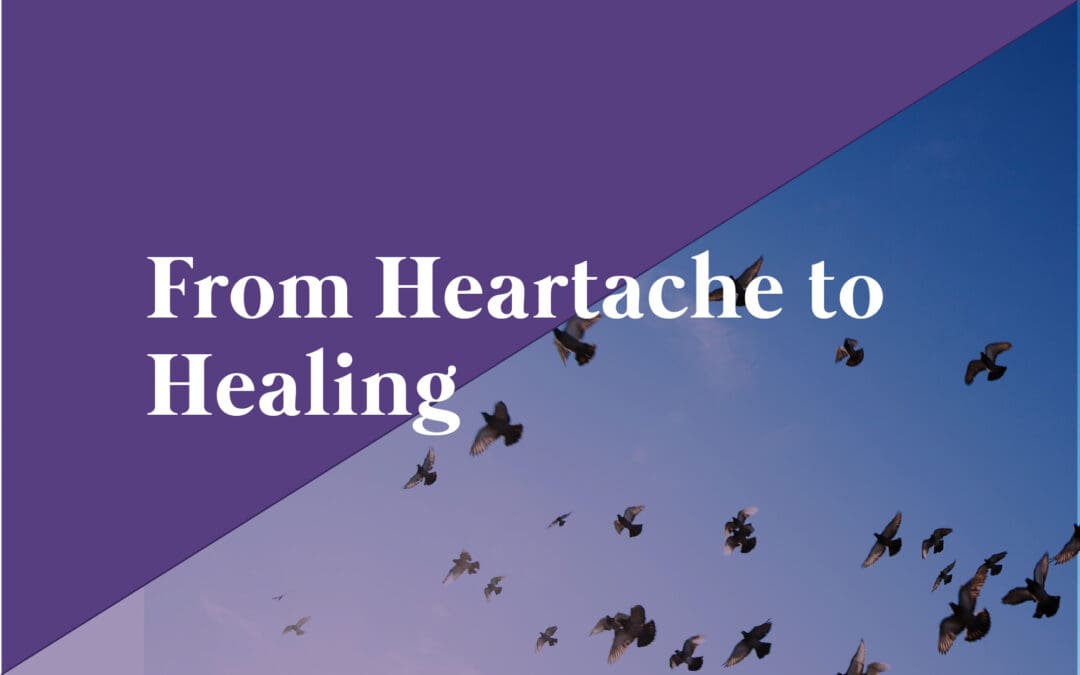
by RE Helper | Dec 15, 2023 | Alcohol Free, Blog, Early Sobriety, The first Year, Uncategorized
Today’s blog entry is from Adam Whitman. Adam has been a member of Café RE since September 2022. Adam has been alcohol free since January 1, 2023 and is very active within his Café RE OG community.
From Heartache to Healing
By: Adam Whitman (Café RE OG)
February 1st, 2023
My first month of sobriety is written in the books. 
The pink cloud is in full view and you better believe I’m right up in it. I take that back. I’m above it. Look at me soar. I’ve actually done it. I quit drinking. And you know, it isn’t that hard. Might I dare say it’s easy? I don’t even want to drink. It’s gross. I actually think it’s gross now.
I can’t hold back. I’m going to say it.
I am a freaking badass.
August 1st, 2023
My seventh month of sobriety is written in the books.
My negative thinking is out of control. Insecurities are running rampant. I no longer relate to my circle of friends. “I don’t like the new Adam” they say as I watch them slowly slip away.
And I’ve gotten fatter. What? Fatter? How the f**k did that happen?
I’m in the midst of the worst people pleasing flareup of my life. My marriage is hanging on by a thread. The woman who I’ve shared 22 years of my life with, who I’ve raised two beautiful children with, is tired. We’re both tired. And I’m not sure we can hold on much longer.
I can’t hold back. I’m going to say it.
I am a freaking mess.
August 5th, 2023
Today I set sail to the RE Bozeman Retreat. I’m driving. Yes, you heard me right. This Texas boy is driving to Montana–3,200 miles round trip. Let’s do this.
But wait a second. Was I really talking about splitting assets with my wife yesterday? Were we really talking about how we would manage custody of our children? What the hell is going on?
Maybe I shouldn’t go. But right now, Bozeman seems to be the only answer. As to what the question is, I have no idea. One thing remains certain.
My life is a wreck.
Trinidad Lake State Park
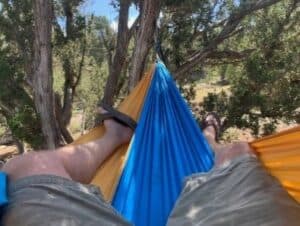 Eight hours to Trinidad, Colorado complete.
Eight hours to Trinidad, Colorado complete.
The tent is up and I’m resting easy in my hammock. Look at me go. I can do this alone. I don’t need anyone. In fact, being alone is better. I am one strong dude. Back and forth my hammock swings between two trees until the sun goes down and the darkness sets in.
I’m lonely.
And afraid.
Did she really say she would leave me?
Quitting drinking uncovered some shit, didn’t it? I can’t get these thoughts out of my head. Who imagined it would be a good idea to venture out into the world alone in a tent for three days? Why am I such a mess? Will I ever get better? Will I be able to stop thinking about her? About me? About all of the shame and regret?
Sun, you can come up now.
 August 6th, 2023
August 6th, 2023
Glendo State Park
Six hours to Glendo, Wyoming complete.
My tent is pitched. It appears as if I’m the only person in this park. Rain starts to fall.
The negative thoughts continue to flood my mind. In addition, the solitude is proving that I really annoy myself. What does that even mean? I annoy myself? Is this what it’s like for others to be around me?
The thoughts continue to relentlessly take over. But within the constant bombardment of negative thinking a new softly spoken response starts to emerge.
Tell the thoughts to stop.
But I can’t.
Yes, you can. Quiet them. Just try it.
Adam, you’ve hurt people. Shh… Adam, you’re not doing enough. Shh… Adam, you’re worthless. Shh… Adam, you’re a failure. Shh… Over and over, like a broken record. Shh…. Enough.
Did drinking cause this madness? No. It hid it though, buried it deep. And now it’s here crawling out of the dark threatening me, whispering lies. I keep telling it to shut the hell up. But will it listen?
Persistence remains.
Time will tell.
August 7th, 2023
Grandview RV Park
Five hours to Hardin, Montana complete.
I chose an RV park this time, laundry and a hot shower, and people too. It’s been awhile. They distract me. This is good. The sunset is beautiful. I order a pizza and rest.
Tomorrow I will be in Bozeman. There I will finally be in the physical presence of my Recovery Elevator friend Jim. We initially met at the REstore Dry January course, the course where my journey towards enlightenment started, where the ups and downs of sobriety began. And Jim held onto me throughout.
If you know Jim that shouldn’t surprise you.
August 8th, 2023
Days Inn Bozeman
Four hours to Bozeman Montana complete.
It’s my first night out of a tent and in a motel. Jim is staying here too. I’m nervous.
After a couple of hours, we meet for dinner. During our introduction a firm handshake occurs followed by an awkward jump as if we both stuck our fingers in a light socket. It’s the ‘should I go in for a hug but then suddenly decide against it’ jump. Solid handshake though Mr. Jim.
I’m glad to finally meet you.
You’ve been a dear friend.
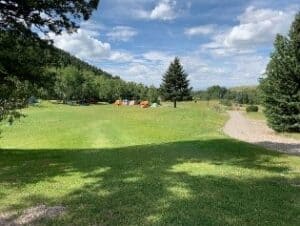 August 9th, 2023
August 9th, 2023
Thirty minutes to Big Sky, Montana complete.
No turning back now.
Jim and I arrive at the retreat. I unpack my gear and set up my home for the next four days. It’s beautiful out here. Once my tent is ready I walk to the registration area. It quickly becomes apparent that many of these retreat goers already know each other.
What if they don’t like me? I am just a middle-aged dude with issues who somehow made his way far from home. Ain’t nothing special about me. Heck, I don’t even know if I like me.
The voices persist.
Maybe I’ll just stand here and pretend I’m feeling confident. Keep your hands out of your pockets Adam. Be cool man. Be cool.
But It didn’t take long before it happened. One, after another, after another approached me. “Where are you from?” they would ask. “You drove here?” “That’s so cool!” “Do you have a family?” “What are their names?”
My God they are so kind. Are all of them like this? Soon I realized that yes, they are. I wondered why. By the end of our time together I found the answer.
It’s because we all share in each other’s unavoidable suffering.
I used to think I could drown that suffering with booze, repress it somehow, maybe even eliminate it, alone. But as you might have guessed it never worked. It only made it worse.
Instead, in the presence of others working their recovery in the stunning landscape of Big Sky Montana, I dared to expose my suffering. I didn’t fight it, I didn’t hide it, I didn’t drown it, I shared it. And they shared theirs with me. And it was beautiful.
Connection is the opposite of addiction and I get it now.
I am here.
I am whole.
Finally.
August 23rd, 2023
My reentry home was purposely slow. I took my 
new-found freedom into the Utah desert first, then back up
into western Colorado to meet my Recovery Elevator
accountability partner, and finally back to the unbearable
Texas heat.
Everything’s changed.
 I missed her.
I missed her.
And come to find out, she missed me.
Today was our first day of marriage counseling.
I’m hopeful.
The negative voices, they’re still there. But they’re quieting, fading. Why? Because I have recovery tools to work with now.
And I have friends.








 Eight hours to Trinidad, Colorado complete.
Eight hours to Trinidad, Colorado complete.  August 6th, 2023
August 6th, 2023
 August 9th, 2023
August 9th, 2023
 I missed her.
I missed her.
